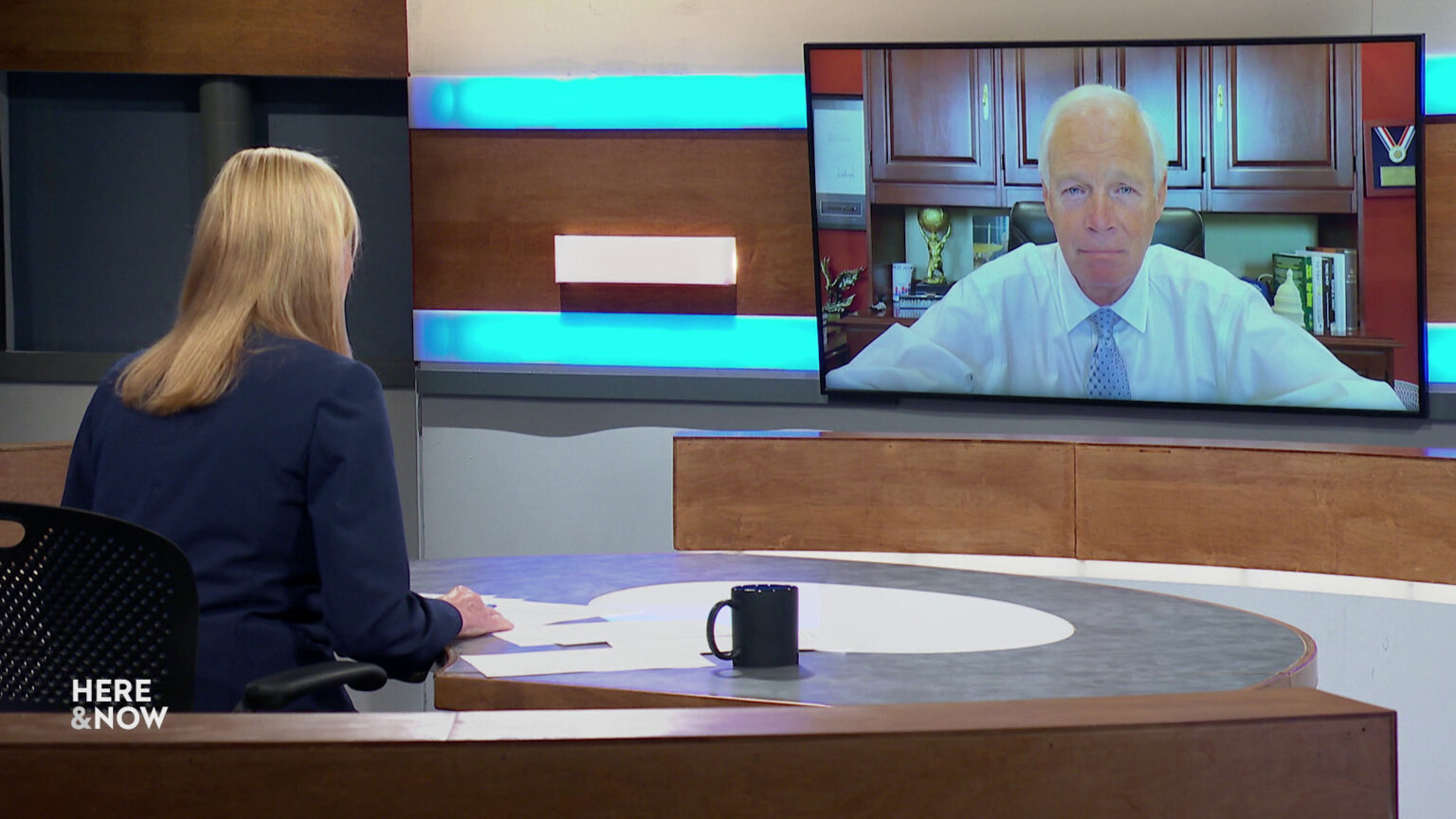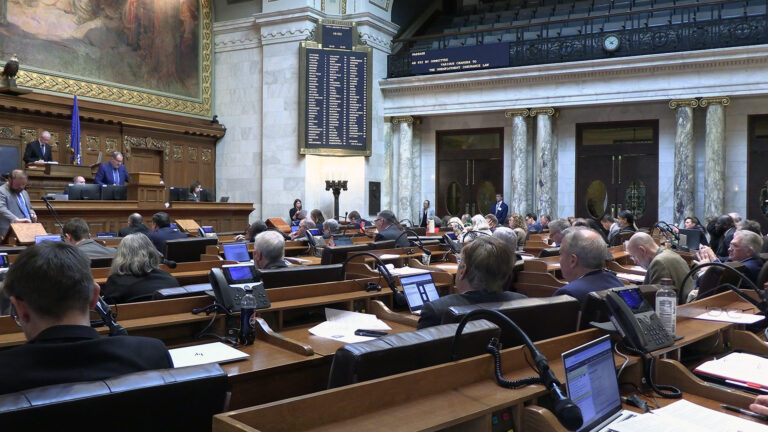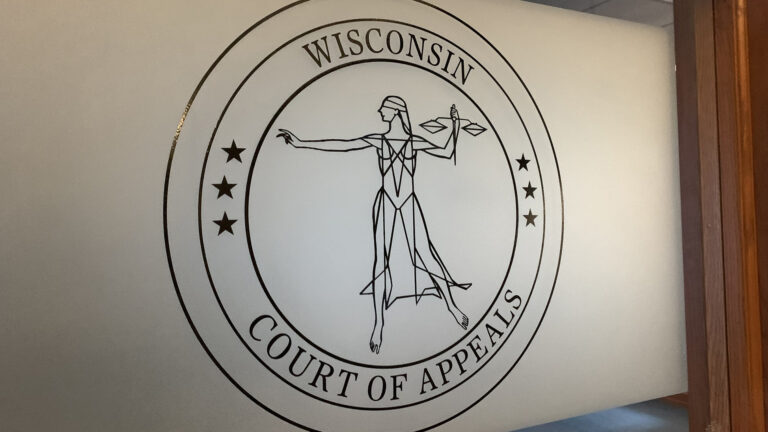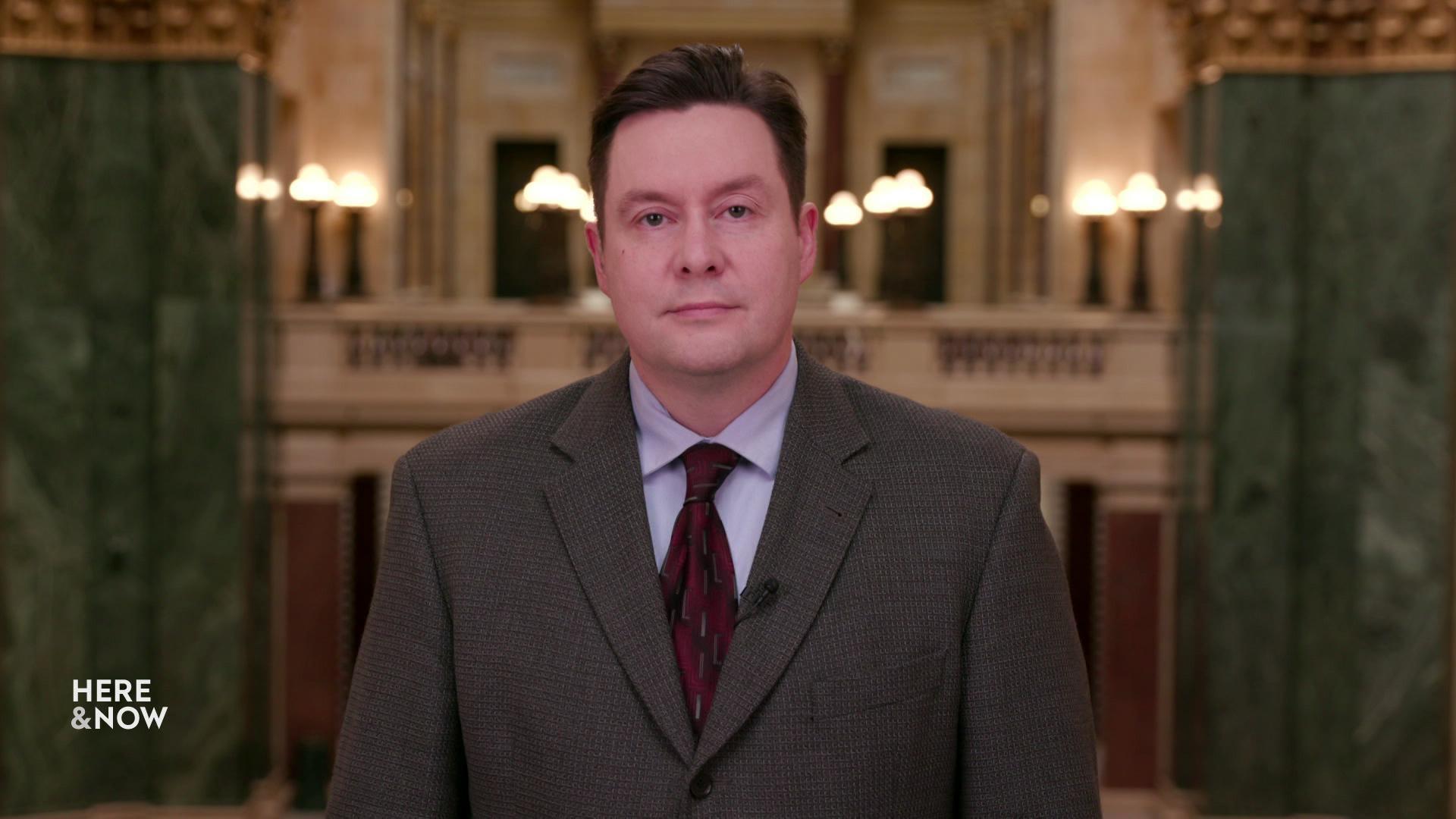'Here & Now' Highlights: US Sen. Ron Johnson, John Rosenow, Sydney Timmer-Murillo
Here's what guests on the Oct. 3, 2025 episode said about the federal government shutdown, immigrant dairy workers and collective trauma from public violence.
By Frederica Freyberg | Here & Now
October 6, 2025

Frederica Freyberg and U.S. Sen. Ron Johnson (Credit: PBS Wisconsin)
U.S. Sen. Ron Johnson wants to stop federal government shutdowns and has a bill to change how funding bills are passed. Buffalo County farmer John Rosenow lamented how immigration laws treat immigrant dairy workers. Medical College of Wisconsin psychologist Sidney Timmer-Murillo described the toll violence like mass shootings and assassinations takes on us all.
U.S. Sen. Ron Johnson
R-Wisconsin
- The 2025 federal government shutdown extended over the weekend after competing funding bills failed to pass the U.S. Senate on Oct. 3. About 18,000 federal workers in Wisconsin are going without pay during this shutdown. Johnson said it doesn’t have to be like this, and has proposed a bill called the “Eliminate Shutdowns Act.”
- Johnson: “If you don’t appropriate money for government prior to the beginning of the fiscal year or any department, it doesn’t shut down government, doesn’t shutdown those departments, it just establishes a rolling 14-day continuing appropriation. So, then the appropriators have time to pass an appropriation bill. Again, it really is modeled after what Wisconsin did in the ’50s. They’re the same thing — it doesn’t decrease, it doesn’t increase spending. It just keeps the last year’s levels until you pass an appropriation.”
John Rosenow
Owner, Rosenholm-Wolfe Dairy
- Rosenow employs 13 migrant workers from Mexico on his Buffalo County dairy farm.
He said they each have a Green Card that allows them to live and work permanently in the U.S. However, he said it’s his guess most immigrant dairy workers do not, because the H-2A Temporary Agricultural Workers visas do not allow for year-round employment, making them unsuitable for the 24-7 work of dairy farming. Rosenow said he has seen discussion around the issue fail to bring policy change, calling it fractious at the federal level. - Rosenow: “I’ve been involved in a few calls with leadership in the administration — conference calls. And what I can gather from that is that there are two factions. One faction led by Stephen Miller thinks all immigrants are bad, doesn’t make any difference who or where you are, they’ve all got to go. And then the other side is people like — Secretary of Agriculture, Secretary of Labor and the Secretary of Homeland Security are on the other side that there are immigrants that are really helping the country. I think this is the battle that’s happening within the administration. I hope common sense prevails.”
Sydney Timmer-Murillo
Psychologist and professor, Medical College of Wisconsin
- The violence of political assassinations and years of mass shootings at schools and churches can result in a kind of collective trauma for everyone. Timmer-Murillo said the highly visible events that permeate mass and social media affect even those who are not directly impacted.
- Timmer-Murillo: “We know that the frequency of how much you see trauma or experience trauma matters, so that repetition of violence really can impact somebody quite significantly. It’s normal for them to then start to experience anxiety or fear or really a threat to their sense of safety, even if it wasn’t you who experienced the violence per se.”
Watch new episodes of Here & Now at 7:30 p.m. on Fridays.
 Passport
Passport











Follow Us